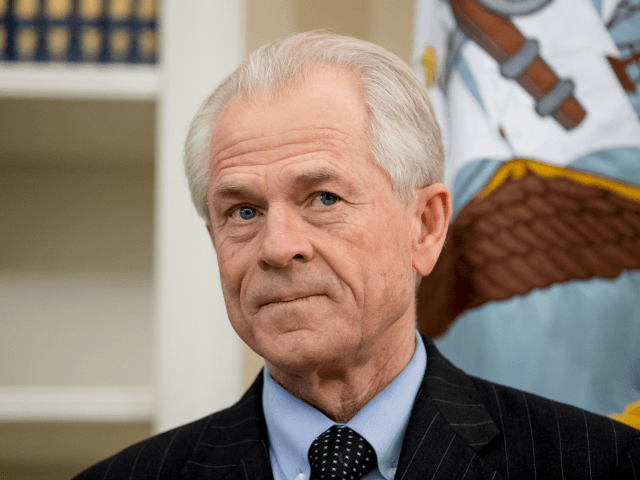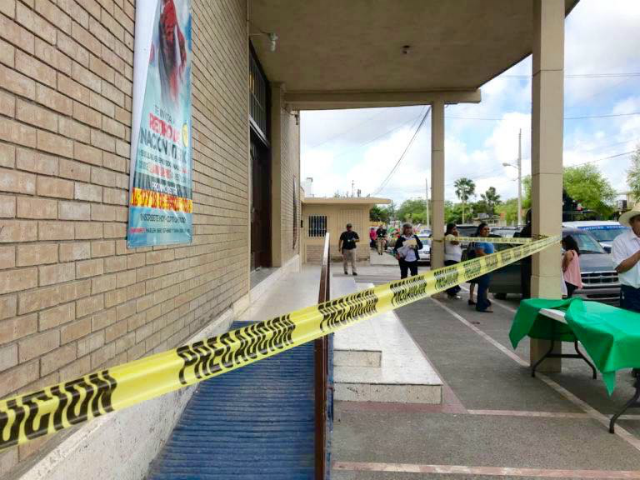Facebook has caved to Democrat political pressure and is censoring newsfeeds on users’ pages, as Mark Zuckerberg explains, for their own good. The progressives at Facebook have gone nuclear.
We built Facebook to help people stay connected and bring us closer together with the people that matter to us. That’s why we’ve always put friends and family at the core of the experience. Research shows that strengthening our relationships improves our well-being and happiness. But recently we’ve gotten feedback from our community that public content — posts from businesses, brands and media — is crowding out the personal moments that lead us to connect more with each other.
 Cutting through the Orwellian talk of connecting us together and ‘feedback from our community,’ this is an entirely political story. After Donald Trump’s election, Zuckerberg came under tremendous pressure to use Facebook for the Democrats’ Resistance. All the bludgeons were brought out – Russian bots, fake news, that Facebook handed an unearned victory to Trump. And the greatest of all, the threat of government regulation.
Cutting through the Orwellian talk of connecting us together and ‘feedback from our community,’ this is an entirely political story. After Donald Trump’s election, Zuckerberg came under tremendous pressure to use Facebook for the Democrats’ Resistance. All the bludgeons were brought out – Russian bots, fake news, that Facebook handed an unearned victory to Trump. And the greatest of all, the threat of government regulation.
At first Zuckerberg resisted the Resistance, but then he caved suddenly, following a personal intervention by Obama.
The results of Obama’s intervention are in:
Engagement on Donald Trump’s Facebook posts has dropped by approximately 45 percent since the platform introduced a new algorithm change, following a year of pressure from left-wing employees and the mainstream media for “allowing” the President to win the 2016 general election.
The most interesting aspect of the progressives’ victory has received almost no press. It was Barack Hussein Obama himself who knuckled Zuckerberg, in a ‘chance’ encounter at an anti-poverty gathering of the glitterati, in Peru. Obama openly told Zuckerberg he had to do something about the next presidential race.
The Washington Post reported last fall:
Nine days after Facebook chief executive Mark Zuckerberg dismissed as “crazy” the idea that fake news on his company’s social network played a key role in the U.S. election, President Barack Obama pulled the youthful tech billionaire aside and delivered what he hoped would be a wake-up call.
For months leading up to the vote, Obama and his top aides quietly agonized over how to respond to Russia’s brazen intervention on behalf of the Donald Trump campaign without making matters worse. …Now huddled in a private room on the sidelines of a meeting of world leaders in Lima, Peru, two months before Trump’s inauguration, Obama made a personal appeal to Zuckerberg to take the threat of fake news and political disinformation seriously, although Facebook representatives say the president did not single out Russia specifically. Unless Facebook and the government did more to address the threat, Obama warned, it would only get worse in the next presidential race. (snip)
The conversation on Nov. 19 was a flashpoint in a tumultuous year in which Zuckerberg came to recognize the magnitude of a new threat — a coordinated assault on a U.S. election by a shadowy foreign force that exploited the social network he created.
 Until Obama’s intervention, Facebook corporate policy was rock solid. Zuckerberg’s entire business model was that Facebook is a platform, not a content provider. The company has always claimed they have no responsibility for content. The Jewish Press begged Zuckerberg to block Islamic Facebook pages teaching how to make ‘lone wolf’ knife attacks fatal. Zuckerberg refused. Not his problem.
Until Obama’s intervention, Facebook corporate policy was rock solid. Zuckerberg’s entire business model was that Facebook is a platform, not a content provider. The company has always claimed they have no responsibility for content. The Jewish Press begged Zuckerberg to block Islamic Facebook pages teaching how to make ‘lone wolf’ knife attacks fatal. Zuckerberg refused. Not his problem.
In the past, Facebook often bowed to PC pressure from the feminist, gay and Islamic communities. Pamela Geller got fed up with being blocked and sued. A gun range owner was blocked after the Orlando shooting for offering free self-defense classes to LGBT. Pro-life crowdfunding a movie on Roe v. Wade was blocked, as were dozens of conservative Catholic websites. But these forays into censorship of conservatives were isolated, and often reversed with claims they had been done by mistake.
That was before the Obama White House had to cover its tracks of spying on the Trump campaign and newly elected President Trump.
At first, Zuckerberg was impervious to the hysteria that fake news and Russian bots on Facebook had thrown the election to Trump. He knew it was nonsense, because he’s a numbers and data guy, and the reach of Russian accounts was pitiful.
Russian interference generated 129 real-world events that drew 340,000 Facebook users. If we look at the number of mobile active Facebook users for December 2016, we see that there were 1.74 billion. Thus, the Russians commandeered 0.000195402% of the Facebook users for that one month.
You could argue that the election was thrown in a few key states, where targeted fake news confused voters. From the Washington Examiner:
Looking at key states, the total spent on ads targeting Wisconsin was $1,979, according to Senate Intelligence Committee chairman Richard Burr. Ad spending in Michigan was $823. In Pennsylvania, it was $300. That is not the stuff of rigging elections.
As for Russian content that appeared on newsfeeds:
“This equals about four-thousands of one percent (0.004%) of content in News Feed, or approximately 1 out of 23,000 pieces of content,” Facebook executive Colin Stretch said in prepared testimony before the Senate last November.
From wired.com:
…at a conference two days after the election, Zuckerberg argued that … “The idea that fake news on Facebook—of which, you know, it’s a very small amount of the content—influenced the election in any way, I think, is a pretty crazy idea,” he said….he likes to form his opinions from data. And in this case he wasn’t without it.
Zuckerberg was correct. The idea that fake news on Facebook helped elect Trump is crazy.
Donald Trump needed Russian help to be effective on Facebook? That’s crazy. The idea that Trump betrayed his country for help on social media is crazy. And the idea that the scale of the Russian effort on Facebook had any impact is crazy.
But telling the truth in Obama’s progressive America is not allowed.
Zuckerberg’s comments did not go over well, even inside Facebook. They seemed clueless and self-absorbed. “What he said was incredibly damaging,” a former executive told WIRED. “We had to really flip him on that. We realized that if we didn’t, the company was going to start heading down this pariah path that Uber was on.”
Zuckerberg was soon disabused of the notion that he could data check whether fake news threw the election. Nice little company you have there.
“After the election, because Trump won, the media put a ton of attention on fake news and just started hammering us. People started panicking and getting afraid that regulation was coming. …and we decided to figure out how we could put together our own packaged program that shows how seriously we take the future of news.”
It took Facebook a long time to figure out how to control fake news.
Censorship at Facebook is no longer a bug. It is a feature. President Trump’s clicks are down 45%.
Facebook has caved to Democrat political pressure and is censoring newsfeeds on users’ pages, as Mark Zuckerberg explains, for their own good. The progressives at Facebook have gone nuclear.
We built Facebook to help people stay connected and bring us closer together with the people that matter to us. That’s why we’ve always put friends and family at the core of the experience. Research shows that strengthening our relationships improves our well-being and happiness. But recently we’ve gotten feedback from our community that public content — posts from businesses, brands and media — is crowding out the personal moments that lead us to connect more with each other.
 Cutting through the Orwellian talk of connecting us together and ‘feedback from our community,’ this is an entirely political story. After Donald Trump’s election, Zuckerberg came under tremendous pressure to use Facebook for the Democrats’ Resistance. All the bludgeons were brought out – Russian bots, fake news, that Facebook handed an unearned victory to Trump. And the greatest of all, the threat of government regulation.
Cutting through the Orwellian talk of connecting us together and ‘feedback from our community,’ this is an entirely political story. After Donald Trump’s election, Zuckerberg came under tremendous pressure to use Facebook for the Democrats’ Resistance. All the bludgeons were brought out – Russian bots, fake news, that Facebook handed an unearned victory to Trump. And the greatest of all, the threat of government regulation.
At first Zuckerberg resisted the Resistance, but then he caved suddenly, following a personal intervention by Obama.
The results of Obama’s intervention are in:
Engagement on Donald Trump’s Facebook posts has dropped by approximately 45 percent since the platform introduced a new algorithm change, following a year of pressure from left-wing employees and the mainstream media for “allowing” the President to win the 2016 general election.
The most interesting aspect of the progressives’ victory has received almost no press. It was Barack Hussein Obama himself who knuckled Zuckerberg, in a ‘chance’ encounter at an anti-poverty gathering of the glitterati, in Peru. Obama openly told Zuckerberg he had to do something about the next presidential race.
The Washington Post reported last fall:
Nine days after Facebook chief executive Mark Zuckerberg dismissed as “crazy” the idea that fake news on his company’s social network played a key role in the U.S. election, President Barack Obama pulled the youthful tech billionaire aside and delivered what he hoped would be a wake-up call.
For months leading up to the vote, Obama and his top aides quietly agonized over how to respond to Russia’s brazen intervention on behalf of the Donald Trump campaign without making matters worse. …Now huddled in a private room on the sidelines of a meeting of world leaders in Lima, Peru, two months before Trump’s inauguration, Obama made a personal appeal to Zuckerberg to take the threat of fake news and political disinformation seriously, although Facebook representatives say the president did not single out Russia specifically. Unless Facebook and the government did more to address the threat, Obama warned, it would only get worse in the next presidential race. (snip)
The conversation on Nov. 19 was a flashpoint in a tumultuous year in which Zuckerberg came to recognize the magnitude of a new threat — a coordinated assault on a U.S. election by a shadowy foreign force that exploited the social network he created.
 Until Obama’s intervention, Facebook corporate policy was rock solid. Zuckerberg’s entire business model was that Facebook is a platform, not a content provider. The company has always claimed they have no responsibility for content. The Jewish Press begged Zuckerberg to block Islamic Facebook pages teaching how to make ‘lone wolf’ knife attacks fatal. Zuckerberg refused. Not his problem.
Until Obama’s intervention, Facebook corporate policy was rock solid. Zuckerberg’s entire business model was that Facebook is a platform, not a content provider. The company has always claimed they have no responsibility for content. The Jewish Press begged Zuckerberg to block Islamic Facebook pages teaching how to make ‘lone wolf’ knife attacks fatal. Zuckerberg refused. Not his problem.
In the past, Facebook often bowed to PC pressure from the feminist, gay and Islamic communities. Pamela Geller got fed up with being blocked and sued. A gun range owner was blocked after the Orlando shooting for offering free self-defense classes to LGBT. Pro-life crowdfunding a movie on Roe v. Wade was blocked, as were dozens of conservative Catholic websites. But these forays into censorship of conservatives were isolated, and often reversed with claims they had been done by mistake.
That was before the Obama White House had to cover its tracks of spying on the Trump campaign and newly elected President Trump.
At first, Zuckerberg was impervious to the hysteria that fake news and Russian bots on Facebook had thrown the election to Trump. He knew it was nonsense, because he’s a numbers and data guy, and the reach of Russian accounts was pitiful.
Russian interference generated 129 real-world events that drew 340,000 Facebook users. If we look at the number of mobile active Facebook users for December 2016, we see that there were 1.74 billion. Thus, the Russians commandeered 0.000195402% of the Facebook users for that one month.
You could argue that the election was thrown in a few key states, where targeted fake news confused voters. From the Washington Examiner:
Looking at key states, the total spent on ads targeting Wisconsin was $1,979, according to Senate Intelligence Committee chairman Richard Burr. Ad spending in Michigan was $823. In Pennsylvania, it was $300. That is not the stuff of rigging elections.
As for Russian content that appeared on newsfeeds:
“This equals about four-thousands of one percent (0.004%) of content in News Feed, or approximately 1 out of 23,000 pieces of content,” Facebook executive Colin Stretch said in prepared testimony before the Senate last November.
From wired.com:
…at a conference two days after the election, Zuckerberg argued that … “The idea that fake news on Facebook—of which, you know, it’s a very small amount of the content—influenced the election in any way, I think, is a pretty crazy idea,” he said….he likes to form his opinions from data. And in this case he wasn’t without it.
Zuckerberg was correct. The idea that fake news on Facebook helped elect Trump is crazy.
Donald Trump needed Russian help to be effective on Facebook? That’s crazy. The idea that Trump betrayed his country for help on social media is crazy. And the idea that the scale of the Russian effort on Facebook had any impact is crazy.
But telling the truth in Obama’s progressive America is not allowed.
Zuckerberg’s comments did not go over well, even inside Facebook. They seemed clueless and self-absorbed. “What he said was incredibly damaging,” a former executive told WIRED. “We had to really flip him on that. We realized that if we didn’t, the company was going to start heading down this pariah path that Uber was on.”
Zuckerberg was soon disabused of the notion that he could data check whether fake news threw the election. Nice little company you have there.
“After the election, because Trump won, the media put a ton of attention on fake news and just started hammering us. People started panicking and getting afraid that regulation was coming. …and we decided to figure out how we could put together our own packaged program that shows how seriously we take the future of news.”
It took Facebook a long time to figure out how to control fake news.
Censorship at Facebook is no longer a bug. It is a feature. President Trump’s clicks are down 45%.





 In a
In a  Cutting through the Orwellian talk of connecting us together and ‘feedback from our community,’ this is an entirely political story. After Donald Trump’s election, Zuckerberg came under tremendous pressure to use Facebook for the Democrats’ Resistance. All the bludgeons were brought out – Russian bots, fake news, that Facebook handed an unearned victory to Trump. And the greatest of all, the threat of government regulation.
Cutting through the Orwellian talk of connecting us together and ‘feedback from our community,’ this is an entirely political story. After Donald Trump’s election, Zuckerberg came under tremendous pressure to use Facebook for the Democrats’ Resistance. All the bludgeons were brought out – Russian bots, fake news, that Facebook handed an unearned victory to Trump. And the greatest of all, the threat of government regulation. Until Obama’s intervention, Facebook corporate policy was rock solid. Zuckerberg’s entire business model was that Facebook is a platform, not a content provider. The company has always claimed they have no responsibility for content. The Jewish Press
Until Obama’s intervention, Facebook corporate policy was rock solid. Zuckerberg’s entire business model was that Facebook is a platform, not a content provider. The company has always claimed they have no responsibility for content. The Jewish Press 



